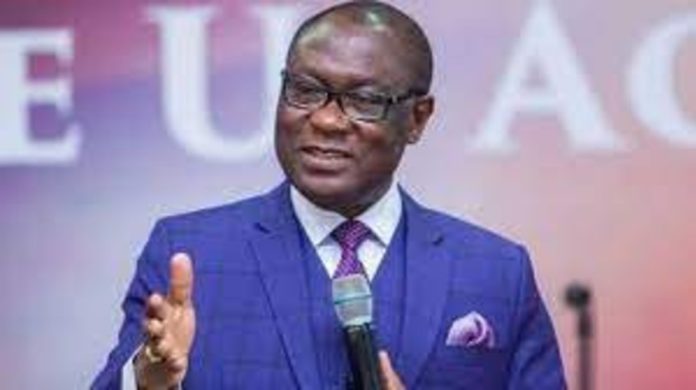The National Peace Council (NPC) has issued a caution to Ghanaians, particularly politicians, against allowing religion to infiltrate the nation’s political sphere.
Emphasising that Ghanaians are a unified people regardless of their religious affiliations, the NPC stresses the importance of preserving unity and harmony within the political landscape.
Rev. Dr. Ernest Adu-Gyamfi, National Chairman of the NPC said division along religious lines cannot be tolerated in Ghana’s political discourse.
In an interview on JoyNews’ AM Show on Friday, April 5, Dr. Adu-Gyamfi urged politicians to exercise prudence in their statements and interactions with followers, highlighting the potentially harmful consequences such actions could have on the nation.
He asserts that politics should be centered on national development for all citizens, rather than serving the interests of specific groups within the nation.
“We want to remind the public that we have already issued a press release cautioning the whole public let’s avoid religion coming into our politics. I went to school initially with Muslim friends and I used to tell my colleagues on the peace council that I used to live in Asafo very close to the Alhamdiya Mosque and my mother’s landlord at the time was a Muslim and played with the kids and sometimes after playing we went to the mosque even though I didn’t know what they were doing. So we are friends and we have lived together.”
“So why are now creating this conflict amongst ourselves?,” he asked.
Meanwhile, the recent statement made by independent presidential aspirant, Alan Kyerematen, advocating for the election of a Christian leader has drawn criticism from both the NDC and NPP.
Addressing members of the Church of Pentecost Dr. Wyatt Assembly over the weekend, Mr. Kyerematen asserted, “As a predominantly Christian nation, it is our responsibility as Christians to elect a Christian leader, who embodies Christ-like qualities.”
However, this pronouncement has sparked disapproval from both major political parties, with critics arguing that such statements undermine the principles of religious freedom and inclusivity in governance.
ALSO READ:

